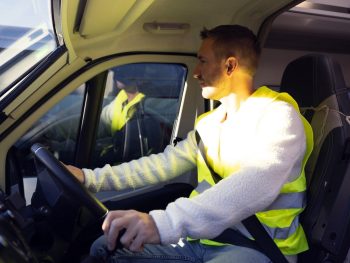Lightfoot has revealed the most common mistakes made by fleet drivers and revealed how businesses can address them to save tens of thousands of pounds.

Frequent driver mistakes – revealed in data analysis by the fleet management and tracking firms – include not knowing their van has a sixth gear and excessive idling. Lack of knowledge on greener and safer driving practices is also paramount.
Lightfoot works with its individual customers to find out the particular errors their drivers make before addressing them.
Data is gleaned from the pre-trial stage of Lightfoot’s involvement with a business. Once the Lightfoot fleet management technology is installed in the fleet, it can highlight these issues and the business can take action to remedy them – helping achieve substantial savings on fleet costs.
The most common mistakes being made are:
No sixth sense
Many van drivers either do not realise, or forget, their vehicle has a sixth gear. This means a vehicle is over-revving when operating on 60 and 70mph road sections. As a result, this can have a substantial impact on fuel efficiency.
Being idle
Excessive idling is a common practice among last mile delivery fleets and infrastructure businesses. By leaving the vehicle running, our data shows this uses 1.07 litres of fuel per hour – this can add up to thousands of pounds worth of fuel costs.
Aggressive intent
Aggressive driving (speeding, late braking, hard cornering) has a significant effect on a fleet budget through the increased risk of accidents and the ensuing increase in insurance premiums, as well as reduced fuel economy. It also increases wear and tear on the vehicle’s brakes and tyres and can lead to unscheduled VOR (vehicle off road) time.
No knowhow
Lack of training around good driving techniques and understanding how technology works is massively reducing vehicle efficiency. This is particularly the case in EVs, with drivers not using brake regeneration properly, or not being aware of the effect of heating on range. Using in-cab coaching prompts from telematics can yield up to a 35% improvement in EV average range.
Paul Hollick, managing director at Lightfoot, said: “The data we receive from our pre-installation testing highlights some significant areas of concern for businesses, which are costing them time and money.
“But once we are able to pinpoint these issues, they are relatively easy to remedy. Driver coaching from our in-cab devices provides significant improvements in driver behaviour in a relatively short space of time.
“Our insights can also help a business make changes to their routines in order to save money, such as suggesting more efficient delivery routes and, with the increasing adoption of EVs, adapting a vehicle’s duty cycle to combine a charging stop with a driver rest period.”
Hollick also stressed the need to reward drivers for their improved behaviour .
“Making this a team process ensures increased employee buy-in and more chance of success,” he elaborated.
Lightfoot rewards its customers’ drivers for greener and safer driving. Drivers can battle it out between friends, colleagues and counties to become top of the leader board and demonstrate their skills. Those unlocking Elite Driver status within the Lightfoot app, also get access to prizes, giveaways, discounts and many other rewards.

